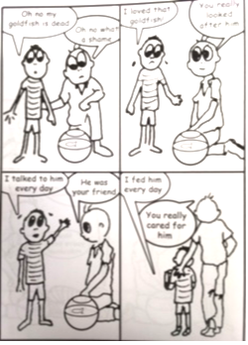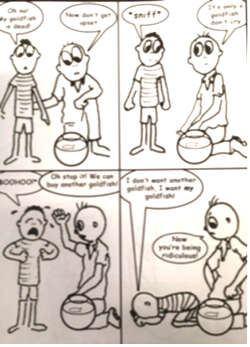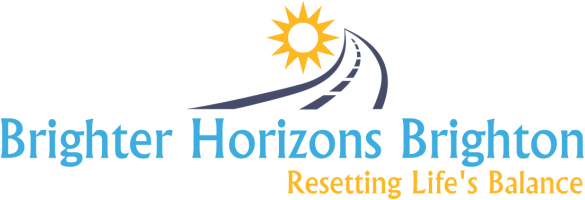 We are seeing more and more self-harming amongst young people, possibly in response to increased cyberbullying, through increased exposure to information, images and possibilities available through social media and the world wide web. A friend spoke to me as a parent of a teenage girl. She became aware of her daughter cutting her legs only when she placed her hand on her leg whilst driving and her daughter winced. My friend described feeling out of her depth, very distressed herself with very little idea of how to approach the issue. She remembered being terrified of making things worse. This blog identifies some skills from Dialectical Behaviour Therapy (DBT) Skills Training for use to assist parents and young people who may find themselves facing similar challenges. When a person hurts themselves it can be understood as a way of dealing with very difficult feelings, painful memories or overwhelming situations and experiences. It can be something young people turn to when they feel they have no other option. Responses given by young people about why they self-harm are likely to be all different, individualised and person specific but can include:-
Difficulties regulating or managing emotions in young people can sometimes be in response to their experience of invalidation. Busy, committed lifestyles can sometimes lead to young people’s communications of emotion going unnoticed, or their attempts to communicate triggers an extreme response from care givers. Because the message a young person is trying to communicate is important, things can quickly escalate. VALIDATION
INVALIDATION
 What to do then ? When parents are facing crisis situations, where a child is engaging in dangerous potentially life threatening acts, e. g cutting themselves or taking overdoses, it is difficult to know what to do. Efforts to try to help, are understandably motivated by anxiety or fear and an overwhelming desire to keep their loved one safe. The emotional temperature of the family unit often rises and it isn’t always possible to make measured reasoned responses. Useful things to bear in mind if the situation allows for it:
DBT seeks to find the middle ground between acceptance and change. In crisis situations it’s difficult to remember the acceptance part because the motivation to make things better, and halt the self-harm is strong. In this situation the ability and willingness to accept in the moment is the vehicle of change in the longer term. DBT Acceptance skills are Mindfulness , Distress Tolerance. DBT Change Skills are Emotional Regulation, Interpersonal Effectiveness. Initially it could be useful to use some Mindfulness skills with your child: Observe-Just Notice Notice body sensations, pay attention, practice wordless watching. Describe-Put words on the experience. When a feeling or thought arises, describe it in your mind. Label what you observe. Unglue your interpretations and opinions from the facts. Describe the facts. Who, what , where, when. Interpersonal Effectiveness Skills Where there is a need to improve communication, open or maintain a dialogue. Here the skill of validation could be applied. VALIDATION Validation means finding the truth in another person’s perspective or situation and verifying the facts of a situation. Acknowledge that a person’s emotions, thoughts and behaviours have causes and are therefore understandable. This does not necessarily mean agreeing with the other person but means accepting and validating the emotions in the moment as they are. It is important to validate (rather than deny) a person’s feelings as being true, accurate and always acceptable (even if sometimes their expression and management of emotions may be hard to understand) Why Validate?
- The facts of a situation. - A persons experiences, feelings/emotions ,beliefs ,opinions ,or thoughts about something. - Suffering and difficulties. Remember Validation is not necessarily agreeing. Validation doesn’t mean you like it. Only validate the valid! If you would like help and support either with self-harm or someone close to you who is engaging in such behaviour, please contact us or check out our consultation package for further individualised bespoke support and advice. References DBT Skills Training Handouts and Worksheets –Marsha M Linehan second edition 2015 Guilford Press. Cognitive Behavioural Treatment of Borderline Personality Disorder-Marsha M Linehan 1993 Guilford Press. Mind Understanding Self Harm Publication/pdf Keeping Children ,Young People and Families safe booklet-Safety Net 2013 AuthorAnne Francis is a Dialectical Behaviour Therapist and Mental Health Nurse. She has expertise in, and extensive experience of, working with adults and young people who self harm and is part of the Brighter Horizons Brighton DBT team.
1 Comment
|
Archives
October 2022
Categories |
DBT
Blog
© COPYRIGHT 2015. ALL RIGHTS RESERVED.
 RSS Feed
RSS Feed
